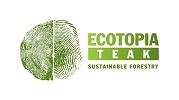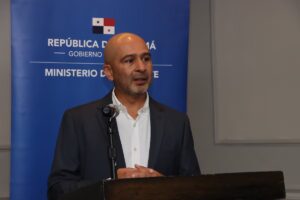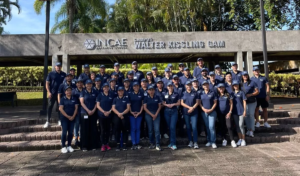
They try to combat illegal timber trafficking
Authorities and private companies seek to promote sustainability and the responsible use of forest resources in Panama.
Yaritza Mojica
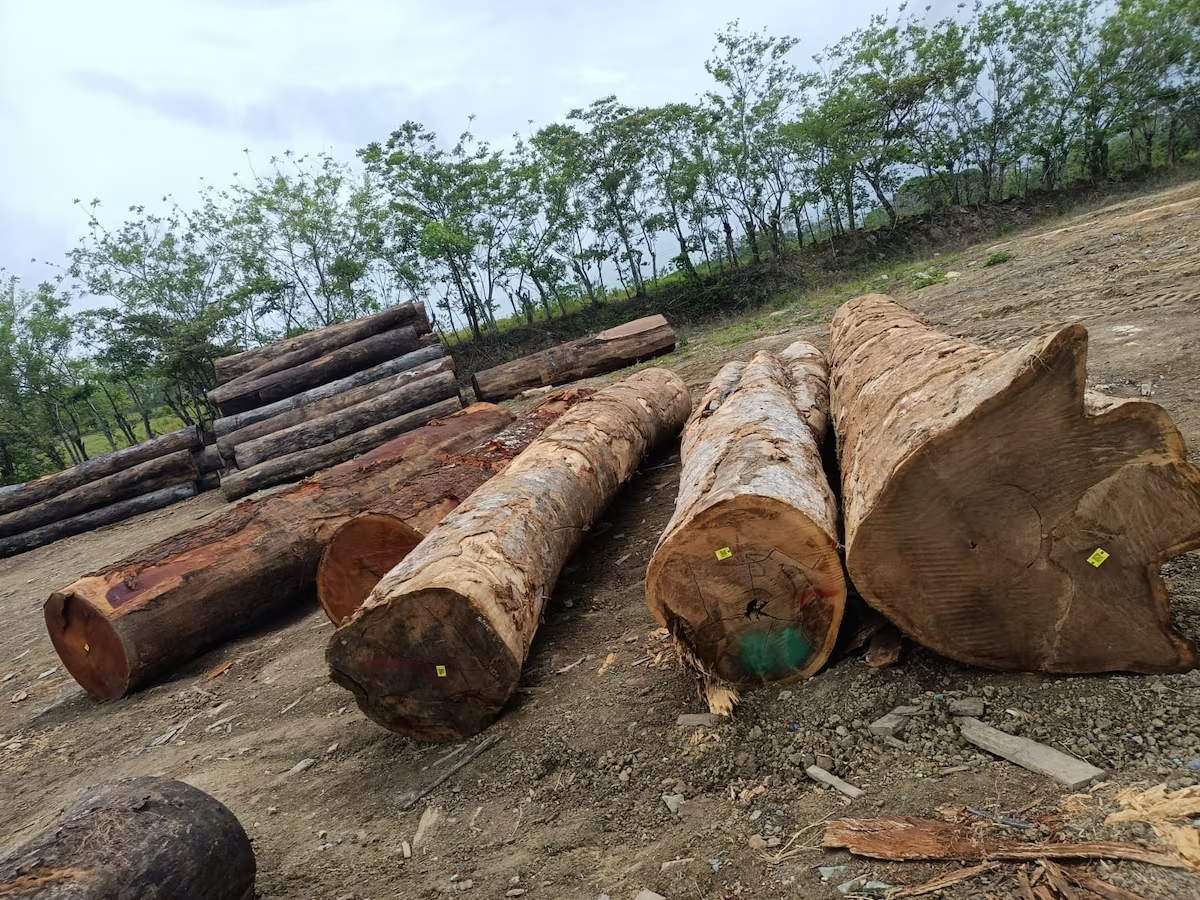
Reducing illegal logging and timber extraction is one of the goals aimed at consolidating a forest management base through the implementation of the Forest Traceability and Control System of Panama (STCF).
This system, established in Resolution DM-006-2018 of February 27, 2018, which creates the STCF of the Ministry of Environment (Miambiente), has made it possible to locate trees from their point of origin, know the origin of the log, as well as identify the timber and its legality.
Additionally, electronic devices (blue and yellow) have been implemented in the trees and logs for identification and registration purposes.
Álvaro Castillo, a forest engineer from the Forestry Directorate of Miambiente, explained that last year 10 cases were detected in which attempts were made to illegally commercialize timber.
The product is transported through small trucks to sell it quickly in small workshops.
Timber is recognized as lacking traceability if it is transported without the forest products being marked or identified with yellow tags, which verify its origin.
So far in 2024, the Forestry Directorate has not reported any cases of illegal timber transportation.
Castillo explained that in Darién, illegal logging of various timber species, including balsam, which is exported, as well as bitter cedar, espavé, and some yellow species, has been detected.
In the central provinces, illegal logging of oak and bitter cedar has been found. In Bocas del Toro, some cases of extraction of millenary species in small volumes have been identified.
According to Castillo, there are platforms that Miambiente establishes for the control of sustainable forest production in the country, including logging, transportation, distribution centers, transformation centers, and the export of species that have an international market.
The forest engineer stated that in forests where logging and extraction of timber occur, with a quantity of 100 trees, only 70% can be extracted, and the remaining 30% of the trees must be left as seed trees.
These seed trees must be “good” trees, meaning they must have a cylindrical trunk, a wide crown, and must not have holes, be damaged, or burned. These characteristics are essential to maintain high-quality seed genetics.
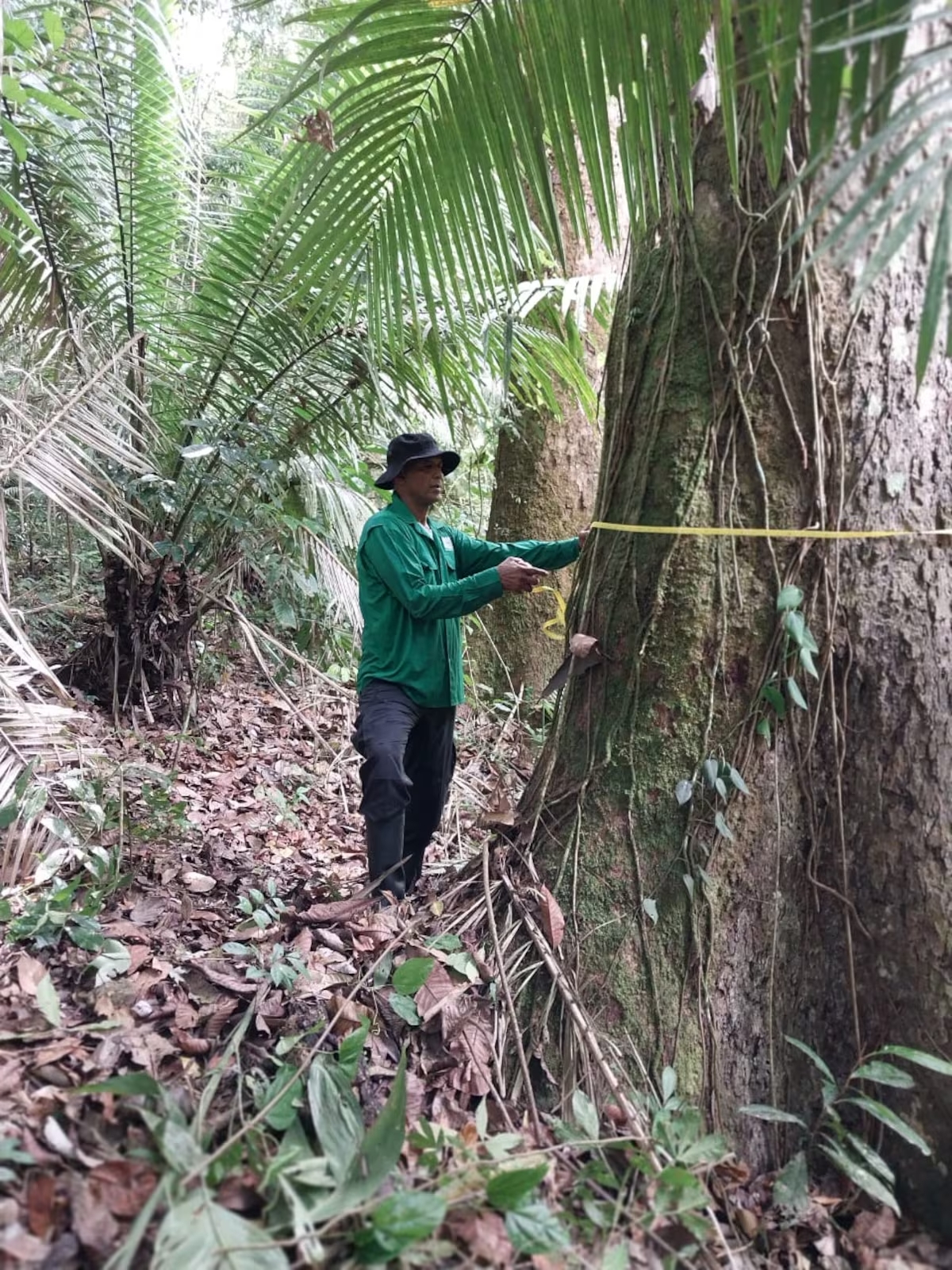
In Panama, there are eight areas designated for timber utilization. These include the Emberá-Wounaan comarca in Cémaco, the Wargandí and Mortí areas, the Guna de Madungandí comarca in Río Sábalo, Chicola Chicola, and two areas for submerged timber utilization in Río Diablo and Aguas Claras within Lake Bayano.
To maintain controls, the Forestry Directorate conducts operations and verifications in all utilization areas, including industries, sawmill areas, and workshops where the STCF is implemented, ensuring that timber guides are signed by qualified personnel.
Additionally, they receive support from the National Border Service (Senafront), the Ecological Police, and the Environmental Prosecutor’s Office.
Bianca Morán, president of the Panamanian Exporters Association and manager of Ecotopia Teak, stated that 98% of Panama’s exports consist of teak, a type of timber sourced from commercial forest plantations.
In this regard, she advocates for the promotion of certified reforestation, which also helps generate jobs in rural areas.
According to Morán, traceability is what allows exports to demanding markets in terms of quality. She explained that certified companies undergo environmental, labor, health, and financial audits, and their forest operations are audited annually.
“With all this traceability in our product, the person who buys a chair or a piece of furniture made from our teak can be assured that not only has the chain of custody been complied with, but they also have a piece of furniture made from sustainable forest timber. This opens many opportunities for Panamanians.”
In Morán’s view, efforts should be made to reach the best markets because of the product’s quality. “Now we need to move towards scenarios with value-added products to increase our export offerings,” she stated.
These statements were made during a discussion on sustainability and the responsible use of forest resources in Panama, which also included participation from Denise Cisneros of Tetra Pak, who presented on sustainability and the use of renewable and recyclable raw materials, as well as representatives from Miambiente.

About us
Ecotopia Teak, S.A., we are a family-owned company dedicated to reforestation, harvesting, and exporting wood from commercial plantations. We work under high production standards and with social responsibility to obtain high-quality wood according to the needs and demands of national and international markets. Additionally, we actively contribute to the local economy by creating employment opportunities in the communities where we operate. Our commitment is to lead the industry in sustainable reforestation and wood production, preserving our natural resources and building a greener and more sustainable future.
